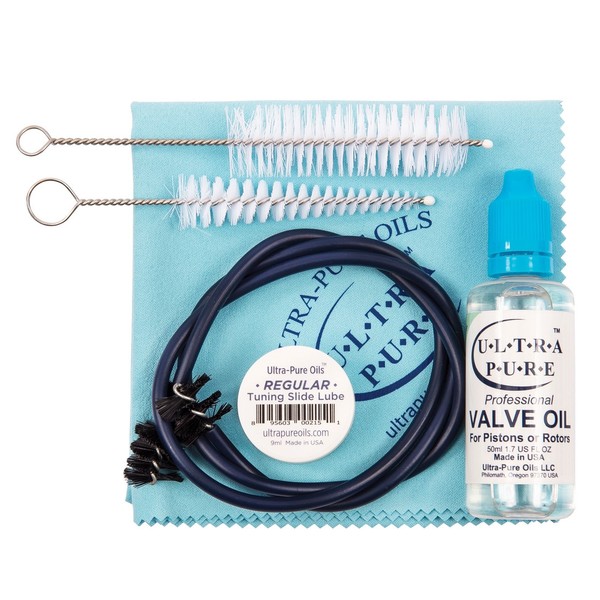Ever feel like your trumpet is trying to make your practice sessions harder than running a race with no trophy? We’ve all been there, holding that shiny brass thing and wondering if we’ll ever sound as cool as Louis Armstrong.

To truly master your trumpet practice, it’s all about consistency, technique, and making the most of every minute. Read along and learn how to craft your practice routine so well that even your neighbors will cheer you on (or at least tolerate your musical adventures).
Crafting the
Perfect Practice Den

Choose a spot in your home where you can set up a comfortable chair, music stand, and adequate lighting. Keep your trumpet and sheet music within easy reach.
It’s not just about convenience; it’s about making your practice time more efficient. Adding some room decor that inspires you can also do wonders. Think posters of famous trumpet players or soothing colors that keep you relaxed.
Daily Warm-Up Rituals

Warm-ups are essential. Start with some mouthpiece buzzing. It prepares those lips—just buzz for a few minutes to wake up your embouchure.
Move on to long tones, holding notes steadily and focusing on producing a clear sound to build endurance and control. Next, practice scales by going up and down the trumpet’s range to develop agility.
Proper Posture:
Stand Tall, Breathe Deep

Stand Tall: Keep your back straight like you’re balancing a stack of pancakes on your head. Slouching is for cowards, not trumpet players.
Feet Placement: Position your feet shoulder-width apart. It’s not a yoga class, just enough to feel stable.
Breathing Deep: Breathe from the diaphragm. Avoid shallow chest breaths—they’re as helpful as a chocolate teapot.
Remember to relax your shoulders. Tension is the enemy! You want to be poised for action, not resembling a petrified statue.
Embouchure Aesthetics: Forming the Perfect Pout

Lip Relaxation: Start by relaxing your lips. You’re doing it wrong if they’re tighter than Ebenezer Scrooge’s wallet.
Forming the Aperture: Create a small, firm hole in the center of your lips. Think of it as though you’re sipping a posh tea. The size might change depending on the note, but keep it controlled.
Avoid Excess Tension: Excessive tension in the lips is like trying to ride a bike with square wheels—it just won’t work smoothly. Keep the lips supple for a clear sound.
Finger Gymnastics

Daily Finger Drills: Valve exercises are like finger workouts for trumpet players. They help you play faster and smoother. Start with slow scales and make each valve press nice and easy. Then, slowly speed it up.
Etudes and Technical Studies: Etudes are your best friends. They are designed to challenge your finger coordination. Work through a variety of them to develop agility. Spoiler alert: you might feel like a wizard after mastering a particularly tricky one.
Alternative Fingerings: Don’t be afraid to experiment with alternate fingerings. This can improve your efficiency and help with tricky passages.
The Metronome Is Your Mate

The metronome is your not-so-silent partner in crime. This little device keeps you in check with its relentless ticking.
Start slow and ensure you’re in sync with the beat. Speed can come later.
Slow practice: Build accuracy before speed.
Gradual tempo increases: Prevents sloppy playing and builds confidence.
Subdivision practice: Helps with complex rhythms.
The metronome helps solidify your internal clock, making you less likely to rush or drag.
Incorporating these elements into your practice ensures every session counts, making you less imperfect with each toot of your horn.
Korg MA-2 Metronome

FEATURES: Larger and more easily readable display
OTHER INFO: Up to 400 hours of continuous operation
Korg MA-2 Metronome
- Enhanced volume and crisp sound for easier detection
- Equipped with 'timer' & 'sound out mode' for daily practicing
- Available in two colours: black and red, or blue and black
- None!
When you click ‘Check Price’, you’ll see there are loads of great places to buy this item. Our personal favorite is Sweetwater for the US, and Thomann and Gear4Music for the UK & Europe.
They are the largest music retailers, with excellent customer service, competitive prices, really fast shipping, and the longest guarantees.
The professional musician who wrote this article combined many things,
from the product build, manufacturer’s reputation through to feedback
from other users, to create our famous TedScore™.
Maintenance and Instrument Hygiene

Daily Wipe Down: Invisible dirt loves your trumpet like tea loves good gossip. After each session, grab a soft cloth and give your trumpet a quick rub-down. Pay attention to those valve casings where grime from your hands tends to gather.
Empty Water: Remove moisture using the water key. This is critical as trapped moisture can lead to corrosion, making your shiny trumpet look as appealing as yesterday’s lunch.
Weekly Scrub: Clean the insides with lukewarm water and a snake brush. Avoid boiling water unless you fancy a warped trumpet. Finish by drying everything with a soft towel like you’re pampering a baby.
Ultra-Pure Trumpet Care Kit

DESIGNED FOR: trumpets, cornets, and flugelhorns
COMES WITH: with an instruction manual
FEATURES: Includes professional valve oil acclaimed worldwide by artists With flexible snake to clean difficult areas Brushes have plastic-coated tips to prevent scratching
- Easy to use
- Includes everything you need to maintain your instrument
- Professional valve oil is used by world-class artists
- None
When you click ‘Check Price’, you’ll see there are loads of great places to buy this item. Our personal favorite is Sweetwater for the US, and Thomann and Gear4Music for the UK & Europe.
They are the largest music retailers, with excellent customer service, competitive prices, really fast shipping, and the longest guarantees.
The professional musician who wrote this article combined many things,
from the product build, manufacturer’s reputation through to feedback
from other users, to create our famous TedScore™.
Developing a Trumpet Practice Routine
Instead of boring, endless practice, find ways to cut your practice time in half while making double the progress. Consistency is your trusty sidekick. Practicing four or five times weekly for at least 30 minutes can yield solid results. However, daily practice sessions are the way to go if you aim to be the next Louis Armstrong.
Mix it up to keep things from getting monotonous. Start with some warm-ups to ease your facial muscles—think of it as yoga for your face.

Warm-ups: Essential for steadying your airstream and improving range.
Embouchure exercises: Crucial for building strength and stamina in your playing.
Breathing drills: Because who knew you had to relearn how to breathe?
After warming up, focus on technique—scales, arpeggios, and long tones. It’s like eating your vegetables; it’s not always fun but necessary for your growth as a musician.
It is essential to break down practice sessions into manageable chunks. They shouldn’t try to eat the whole cake in one go!
Keep it fun. After all, what’s the point if they’re not enjoying themselves? The journey to mastering the trumpet should be as delightful as the music they produce.











man, this all seems like a ton of work. just wanna play, not do all this extra stuff.
While I agree that practicing four or five times a week can yield results, I’d argue that the quality of practice matters more than the quantity. Spending 30 minutes mindlessly running scales won’t do much. It’s all about mindful, goal-oriented practice sessions. Thoughts, Cai Isfryn?
While I appreciate the emphasis on maintenance and instrument hygiene, I have to argue that recommending a ‘quick rub-down’ might instill a lackluster hygiene ethic in young musicians. It’s essential that we teach them to dismantle and thoroughly clean their instruments on a regular basis, not just wipe down visible parts. Would love to hear your thoughts, Cai Isfryn.
That’s an interesting point, Trevor S. How often would you recommend a full clean then?
I’ve truly underestimated the joy of a daily wipe down until now. It’s not only about hygiene but also forming a bond with your instrument. Gazing upon a clean, gleaming trumpet after a session does bring a special feeling of pride and care. Well articulated, Cai Isfryn.
Microfiber works best — picks up oil and dirt without scratching the surface.
Does it matter what type of cloth I use for cleaning? Want to make sure I’m doing it right.
Embouchure aesthetics: making sure your pout is more on point than a teen at a prom photoshoot.
really dig the part on warm-up rituals. mouthpiece buzzing is a game changer for sure.
Cai Isfryn, got any tricks for not getting dizzy when doing those long warm-up buzzes? Sometimes feels like a workout for my head too, lol.
Hey, Cai Isfryn, loved the section about crafting the perfect practice den. I was wondering, though, would you recommend any specific chair for practicing? I’ve got a pretty standard office chair right now, but not sure if it’s cutting it for those longer practice sessions. Thanks!